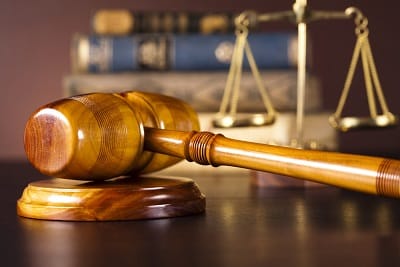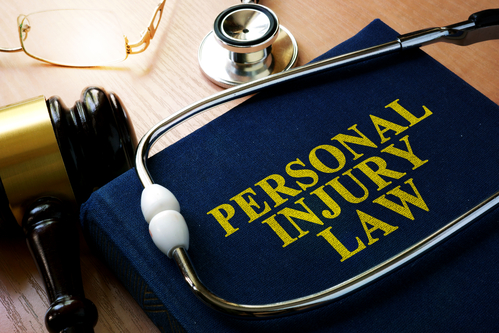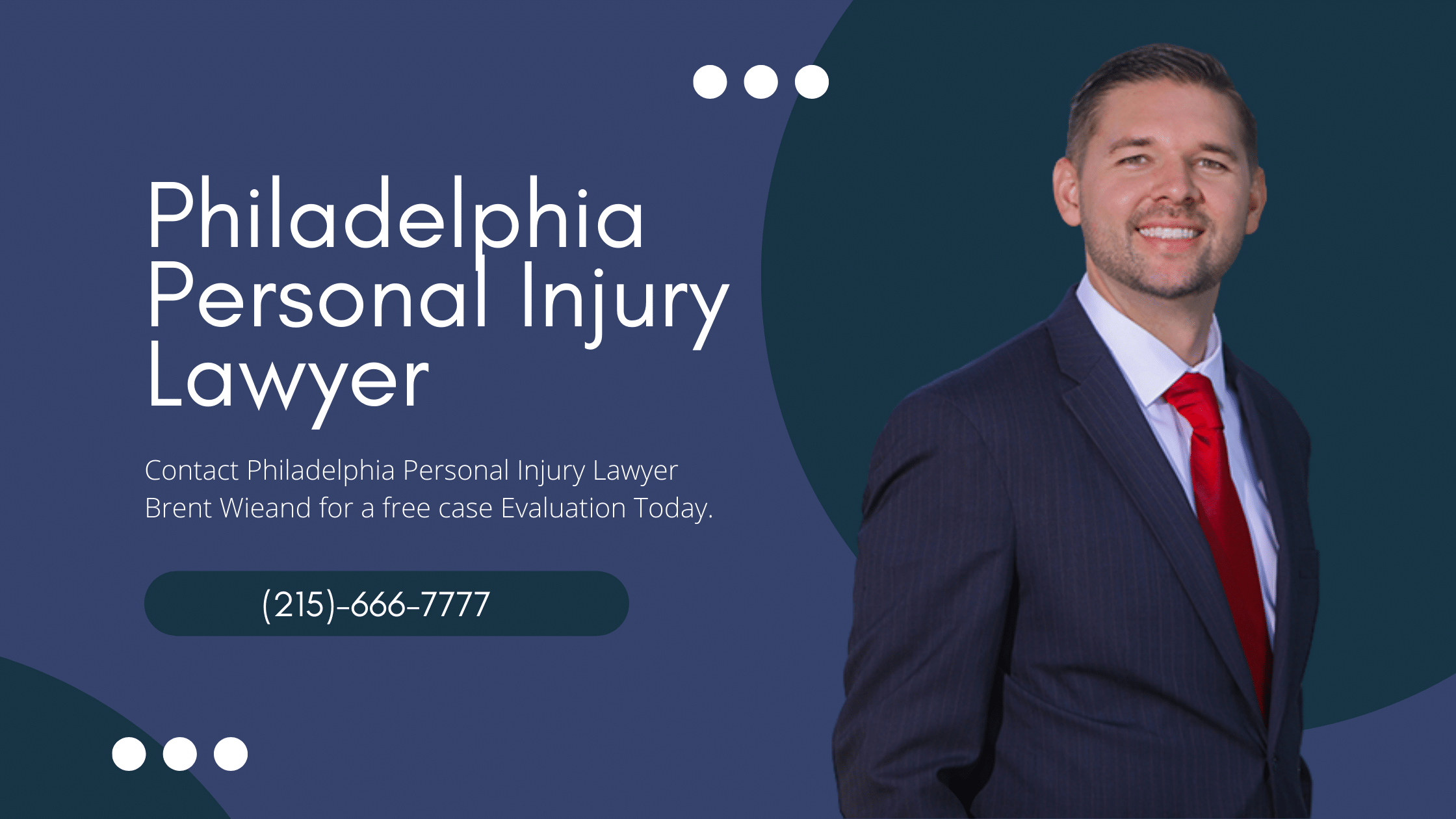 Any time you enter a building, visit a swimming pool or step into a parking lot or parking garage, you expect it to be structurally sound and safe. This is because property owners have a legal duty to maintain their property in a reasonably safe condition that is free of safety hazards.
Any time you enter a building, visit a swimming pool or step into a parking lot or parking garage, you expect it to be structurally sound and safe. This is because property owners have a legal duty to maintain their property in a reasonably safe condition that is free of safety hazards.
A Philadelphia premises liability lawyer at the Wieand Law Firm understands that property owners don’t always comply with laws that are meant to protect all of us. If a property owner fails to keep a building, pool, or their land in a safe condition, it may result in terrible injuries or even death.
If you or one of your loved ones were injured on a defective property, or if one of your loved ones became a victim of wrongful death, you may be able to hold the wrongdoer accountable and recover compensation by filing a claim or lawsuit with assistance from an experienced Philadelphia premises liability lawyer. To talk about your Pennsylvania or New Jersey personal injury claim in a free and confidential legal consultation, call the Wieand Law Firm at (215) 666-7777.
To understand what premises liability involves, you need to understand how you define premises and liability. A “premises” is simply property that belongs to an individual, business or the government. Some examples of types of properties where injuries or fatal disasters frequently occur, potentially giving rise to a premises liability claim, include:
“Liability” is a legal term which means to hold a negligent party accountable for injuries and losses sustained by the victim. For example, if a person is injured because they slip on a puddle of leaked sauce or soda at a grocery store, one or more companies or individuals could be liable, depending on when, how, and why it occurred. In most cases, the negligent party has insurance which will cover damages caused by the negligence of the insured. A Philadelphia premises liability lawyer can determine who may be liable for your injuries, identify their insurance coverage, and seek maximum compensation for your claim.
The answer to this question depends on the circumstances under which the injury or death occurred. A property owner may be liable for an injury caused on his or her property if the following criteria are met:
If the above facts are true, it may be possible for the injury victim to recover financial compensation by:
The Wieand Law Firm has a track record of obtaining favorable settlements and verdicts for clients who suffered serious injuries because of a dangerous or hazardous condition on another’s property. We have a deep understanding of the complex premises liability law in Pennsylvania and New Jersey, and regularly handle premises liability cases, including slip and fall cases, throughout both states. We are experienced at holding property owners accountable for their carelessness and will fight aggressively on your behalf.
The most common types of premises liability cases involve falls on a defective condition. These so-called slip, trip, and fall accidents a rarely an accident. Instead, they are due to a dangerous or defective condition of the property. For example, you may have a claim if you were injured because you slipped and fell on a wet floor when shopping, or if you tripped on a broken sidewalk.
 What Types of Cases Can a Premises Liability Lawyer Near Me Help With?
What Types of Cases Can a Premises Liability Lawyer Near Me Help With?While slip and fall claims account for many premises liability cases, there are many other hazards that can also injure or kill innocent people. Some examples of common premises liability claims we handle include:
Assault injuries, sexual assault, and wrongful death – assault injuries resulting from negligent security fall under the umbrella of premises liability. Property owners have a duty to protect guests that visit their property. Providing a safe environment means implementing adequate security measures. Examples of assaults from inadequate security include:
Contact a Philadelphia premises liability if you believe that negligent security resulted in an assault. Our lawyers can discuss your option to file a premises liability case to hold negligent property owners liable for your injuries.
Balcony collapses – business owners, landlords, contractors and inspectors can be held liable for injuries sustained on a balcony or porch collapse. A premises liability attorney can assist you with evaluating your claim and initiating a claim. Common issues related to balcony collapse include:
A Philadelphia premise liability lawyer at the Wieand Law Firm can thoroughly investigate your claim and determine who is liable for your injuries. Our firm can file a premises liability case to seek maximum compensation for your injuries.
Building code violations – Violations of building codes create serious dangers. When these dangers result in injuries, you may need the services of a premises liability attorney. Examples of building code violations include:
Call the Wieand Law Firm to learn about filing a premises liability case from injuries suffered from building code violations.
Burn injuries caused by fires – You may be eligible to file a premises liability claim if you sustained a burn injury due to negligence at a business. For example, some nursing homes or personal care homes will supplement their heat sources using dangerous space heaters. A dementia resident who suffers burn injuries from a space heater at these businesses may be able to hold the facility liable for their injuries. A Philadelphia premises liability lawyer can evaluate your claim and inform you of your legal options.
Chemical burns – burns caused by cleaning agents and other volatile substances should be properly secured to prevent injury. This is particularly important for businesses that have child visitors who may be unable to read caution labels.
Defective stairways or railings/banisters – Property owners or managers can be held liable when a defective staircase causes a fall injury. Staircase accidents are a leading cause of accidental injury, accounting for 12,000 deaths per year. A premises liability attorney understands that brain injuries, spinal cord injuries, fractures, and lacerations from defective stairways can have serious or permanent impacts on your life.
Dog Bite Injuries – In Pennsylvania, property owners are responsible to for their dog’s aggressive actions whether or not the animal has a past history of violence. Under strict liability, the dog’s owner is liable for all bit-related medical costs. To seek compensation for other damages, such as pain and suffering, you must be able to prove negligence. A Philadelphia premises liability lawyer at the Wieand Law Firm has experience proving negligence and seeking maximum compensation for dog bite injuries.
Elevator Injury – The National Institute for Occupational Safety and Health (NIOSH) cites elevator accidents as the cause of 17,000 serious injuries per year. Common causes of elevator accidents include:
Escalator Injury – Escalators must be properly installed and maintained to prevent serious injuries to those using them. Property owners or managers may have liability for escalator injuries caused by faulty equipment or failure to maintain and repair the escalator according to manufacturer guidelines. Injuries commonly arise from:
Speak with a Philadelphia premises liability lawyer about any injuries you sustained from a malfunctioning escalator. Our attorneys work with industry experts to examine and support premises liability cases for elevator malfunction.
Property owners are not responsible for all injuries that occur on their property, even if the injuries are very severe or permanent. Instead, the liability of the property owner depends on a complex factual and legal analysis. This includes factors such as:
In premises liability cases, the court will examine the actions of the injured plaintiff. First, plaintiffs must establish their permission to be present on the property. For example, the plaintiff may be an invited social guest or a business patron of the property. Typically, property owners do not owe a duty to trespassers on the property other than to warn of dangerous property conditions of which the owner is aware.
Pennsylvania is a modified negligence states, so courts can reduce the plaintiff’s award by their percentage of fault according to Pennsylvania law. A Philadelphia premises liability lawyer can help prove that the property owner was at fault and help protect injured victims from contributory negligence allegations.
Because determining liability is such a complex task, it is crucial to be represented by a highly skilled and experienced premises liability attorney.
Typically, premises liability treats trespassers on a property differently than it treats invited guests. However, exceptions may apply when the trespasser is a child. An attractive nuisance is a feature, such as a swimming pool, hot tub, or playground equipment, that could entice a child to trespass. Property owners must take precautions to ensure that children cannot access attractive nuisances on their property and get hurt.
During the hot and humid summer, taking a plunge into a cool swimming pool can be fun and refreshing. Unfortunately, swimming pools are also known to be hazardous and inherently dangerous to children. Even adults who are strong swimmers can drown or suffer life-altering submersion injuries (“near drowning”), living with extensive brain damage and limited functionality afterward. Some common causes of drowning in Pennsylvania and New Jersey include:
Swimming pool injuries and drownings occur each year at school pools, gym pools, private pools, hotel pools, resort pools, water parks, and public swimming pools. However, pool owners are required to take precautions to ensure that pools are reasonably safe and comply with regulations. Additionally, pool owners must take special precautions to protect children.
For example, Pennsylvania public pools are required by law to have a lifeguard on duty and must have a fence around the property. In addition, many municipalities require private pool owners to have a fence surrounding their pool. Lack of supervision and lack of fences or other barriers are two main causes of drowning.
If you or your child’s injuries occurred at a private pool or public pool, you may have a case against the owners of the pool.
You should consult with an experienced drowning accident lawyer who can help determine if the property owner was negligent in some way. You may be entitled to financial compensation for medical bills, pain and suffering, lost income, and other losses.
Some property owners attempt to limit or shift liability for accidents by displaying a warning sign on their property. These signs typically read that visitors “enter at their own risk” or that the owner is “not responsible for accidents or injuries.”
In some situations, warning signs are required. For example, Philadelphia premises liability lawyers share that many local and state jurisdictions require swimming pool owners to post signs warning of the dangers of using a public pool. Warnings signs are also often required in areas posing hazards to guests or visitors on the property, such as a sign warning of a broken staircase.
However, putting up a sign does not mean that the property owner can skirt around liability for negligent conditions on their property when someone is injured. While a warning sign can impact the determination of liability, it’s not a guarantee that the property owner will avoid all liability. If you’ve been injured from a fall or other incident on another person’s property, speak with a premises liability attorney as soon as possible.
 What Damages Can I Win in a Premises Liability Case?
What Damages Can I Win in a Premises Liability Case?The premises liability attorneys at the Wieand Law Firm can help determine the damages that may be covered in your specific case. Frequently, damages in a premises liability case may include:
Consult with a Philadelphia premises liability lawyer to determine which damages you may be eligible for.
Each state has a statute of limitations that requires you to file your premises liability claim in a specific time to be eligible for compensation. In Pennsylvania and New Jersey, the statute of limitations for premises liability cases is two years after the date of the accident.
In rare circumstances, you may have a valid claim after the two-year time period following the accident has passed. For example, if you did not realize the extent of your injury until a long time after the accident occurred, a skilled lawyer may argue that your injury should be based on the date you recognized the full extent of your injuries. Consult an experienced premises liability attorney at the Wieand Law Firm to understand how the statute of limitations will impact your individual case.
Dog Bite Laws in PA: What to Know
Premises Liability and Slip and Fall claims
Is the City Liable if I Fall on the Sidewalk?
How Long Do You Have to Go to the Doctor After a Slip and Fall Accident?
Premises Liability and the “Trespasser” Defense
 Do You Need a Philadelphia Premises Liability Lawyer for a Premises Liability Case?
Do You Need a Philadelphia Premises Liability Lawyer for a Premises Liability Case?Although your claim may appear straightforward, premises liability cases can be challenging to prove in court. It is important to hire an experienced personal injury lawyer who knows common defenses to premises liability cases and how to overcome them.
The Wieand Law Firm knows how to get maximum compensation for your premises liability claim. We offer free initial legal consultations, and work on a contingency basis. That means we don’t get paid unless we take your case and recover money for you.
Our skilled premises liability attorneys handle personal injury cases throughout all of Pennsylvania and New Jersey. Call us today for a free legal consultation at (215) 666-7777.
Disclaimer: This article is for informational purposes. It is not legal advice and should not be used as legal advice. The Wieand Law Firm, LLC is based in Philadelphia, PA, and proud to serve clients throughout Pennsylvania and New Jersey.
Review: 5/5
★ ★ ★ ★ ★
“Brent is very conscientious and professional. I highly recommend him if you need an attorney. ”
-Quinton Kinne
